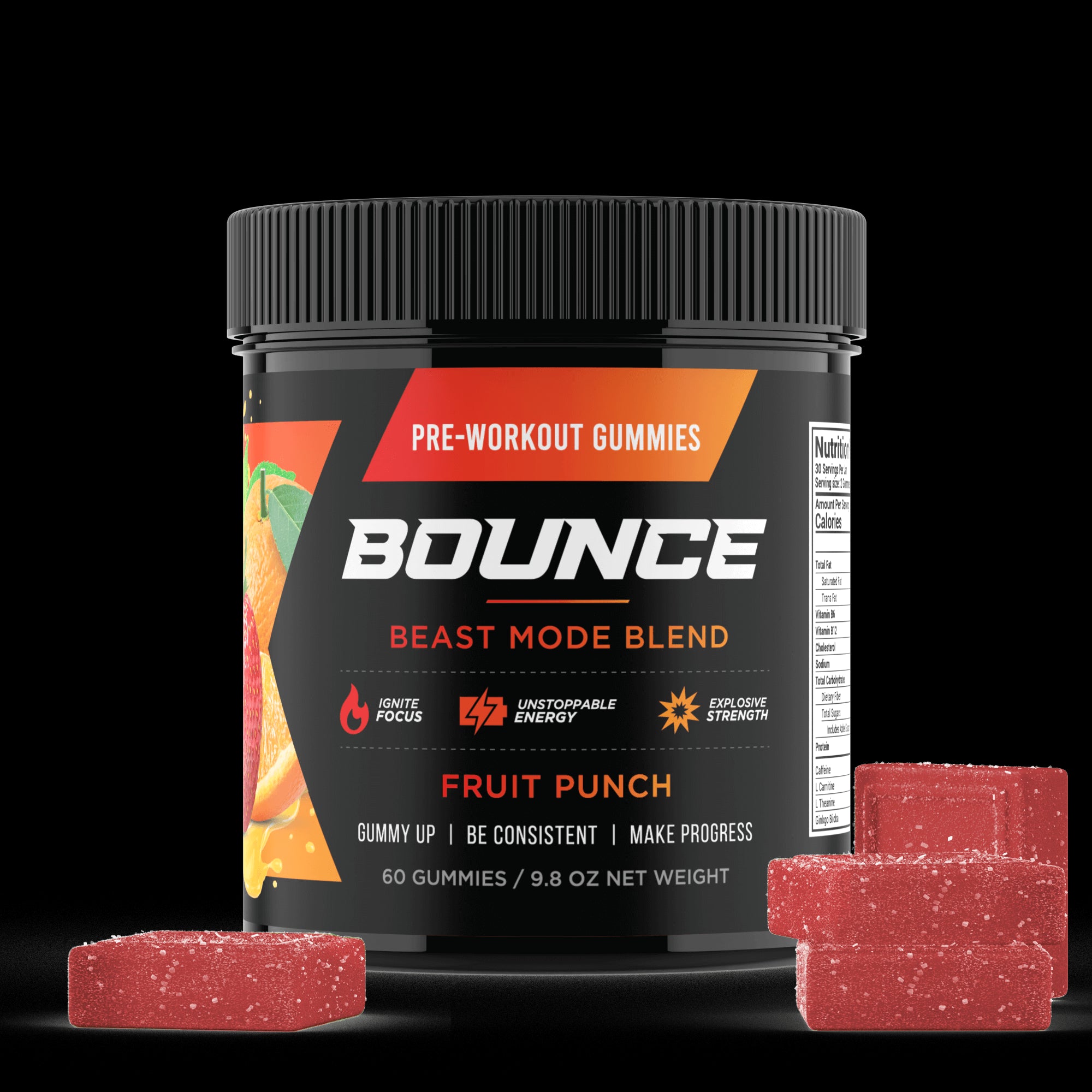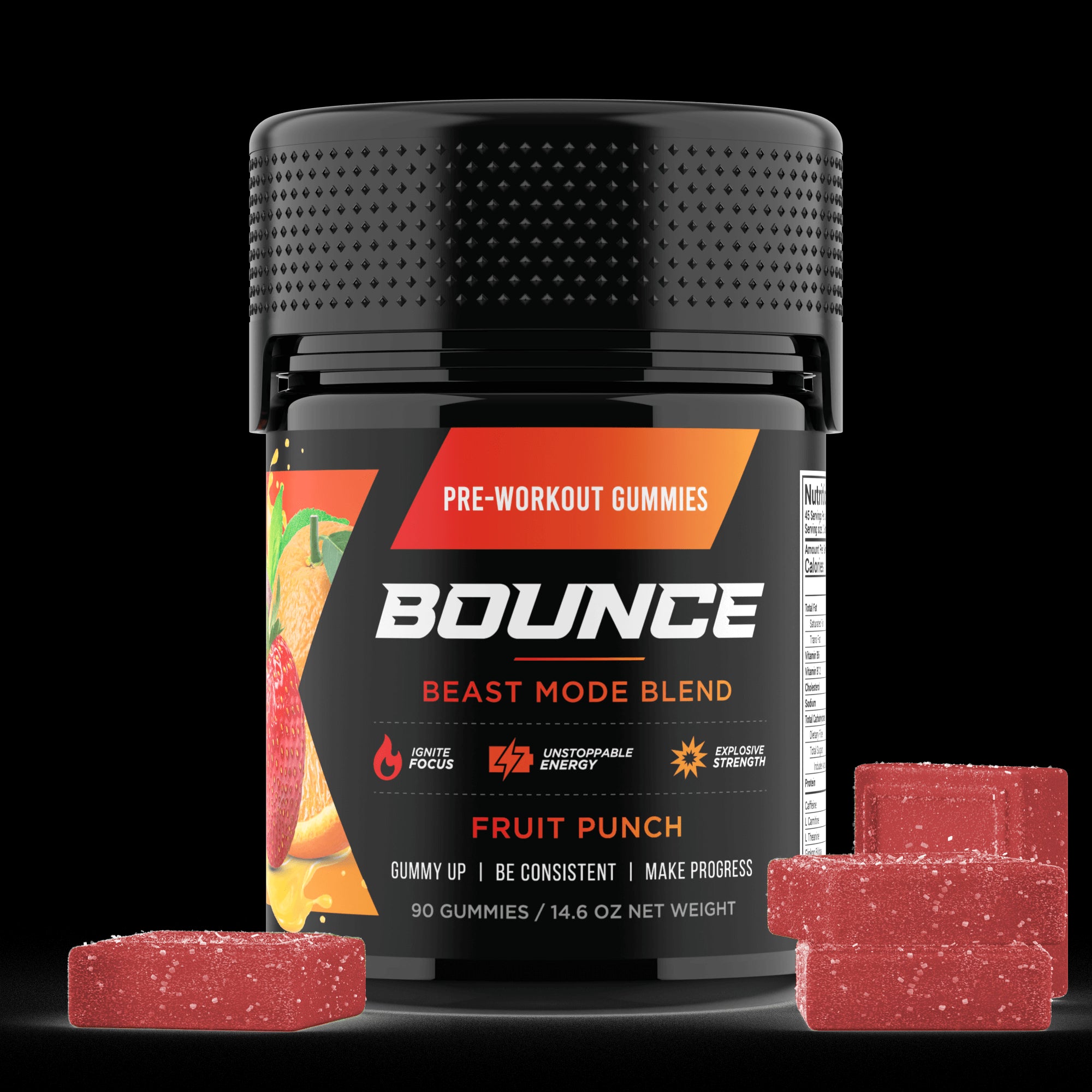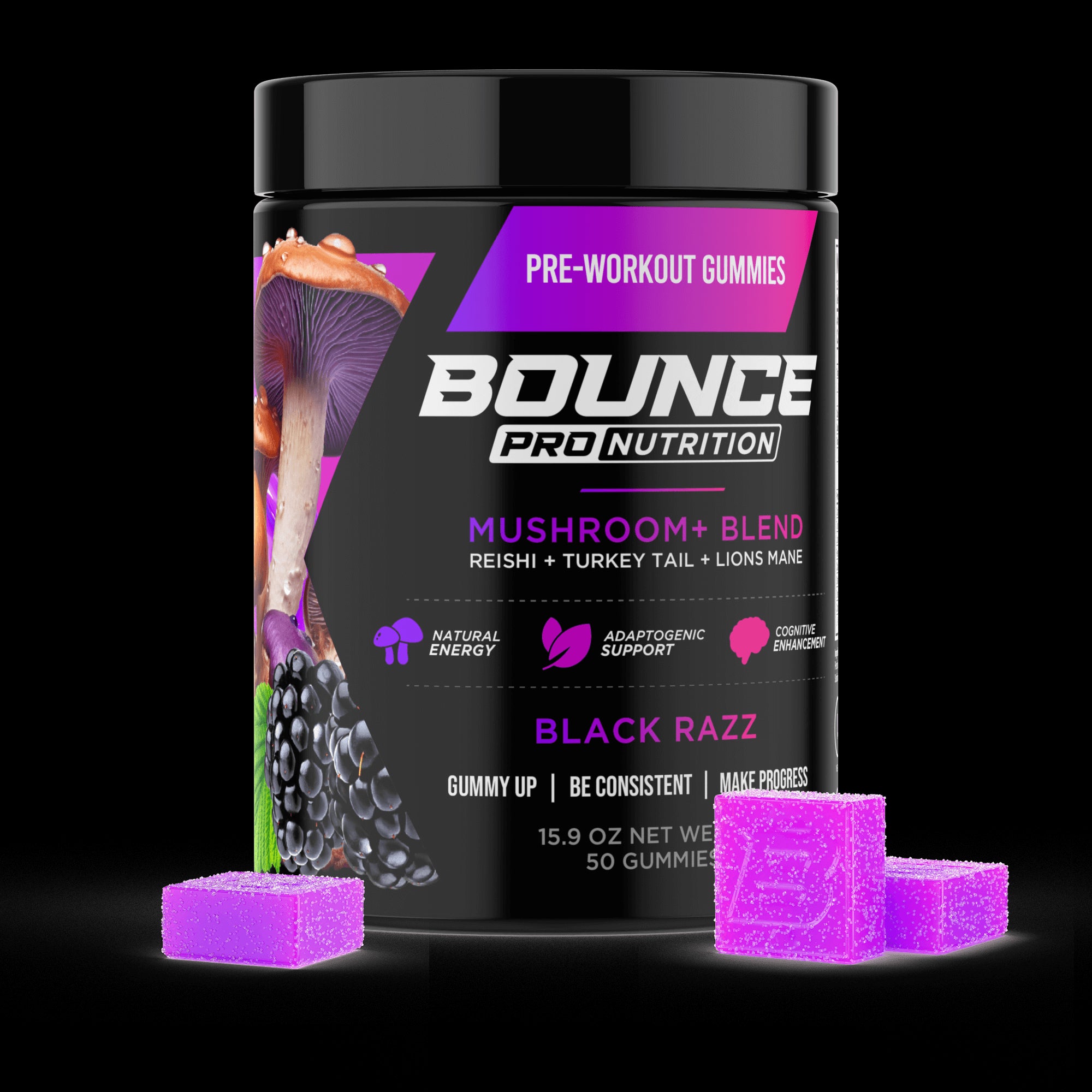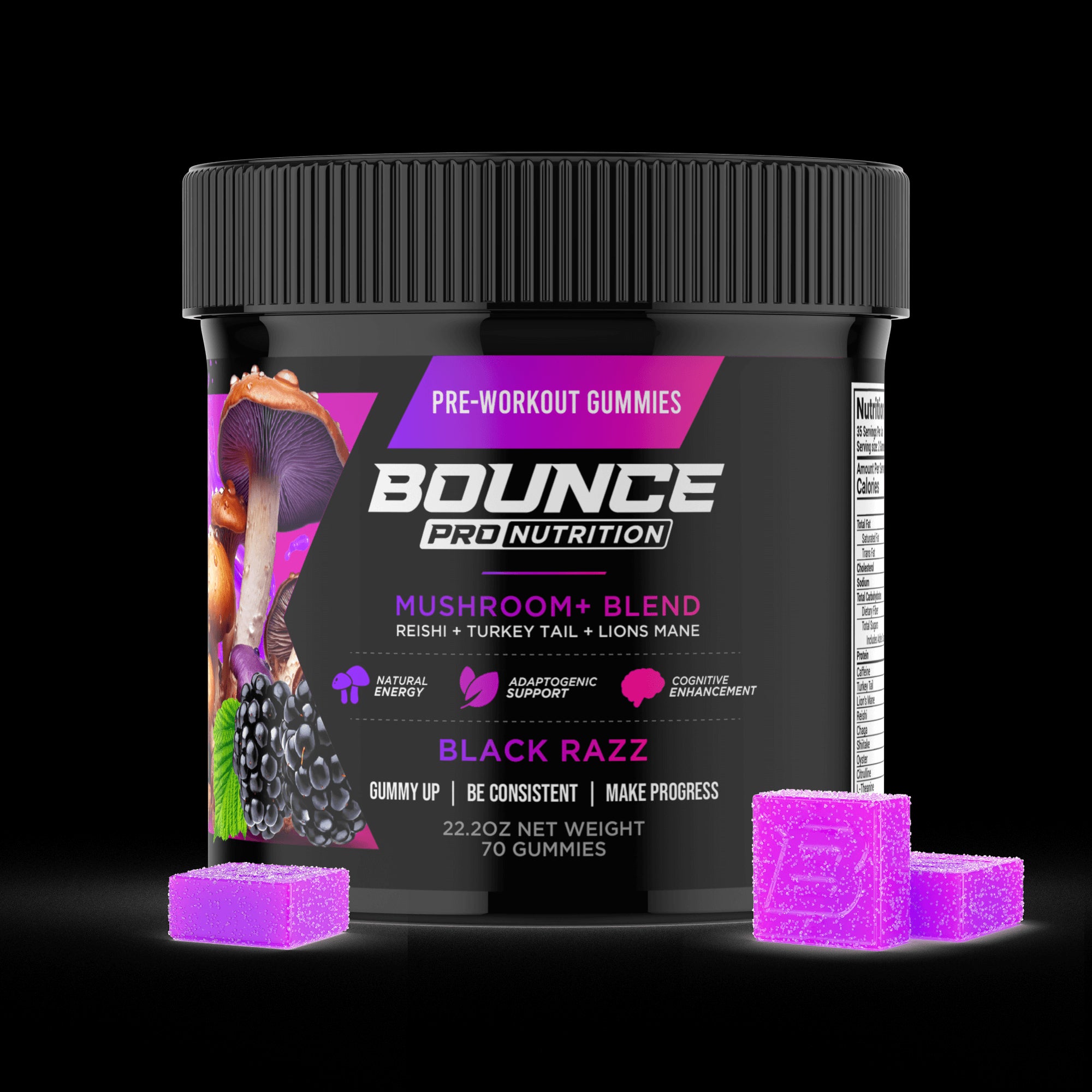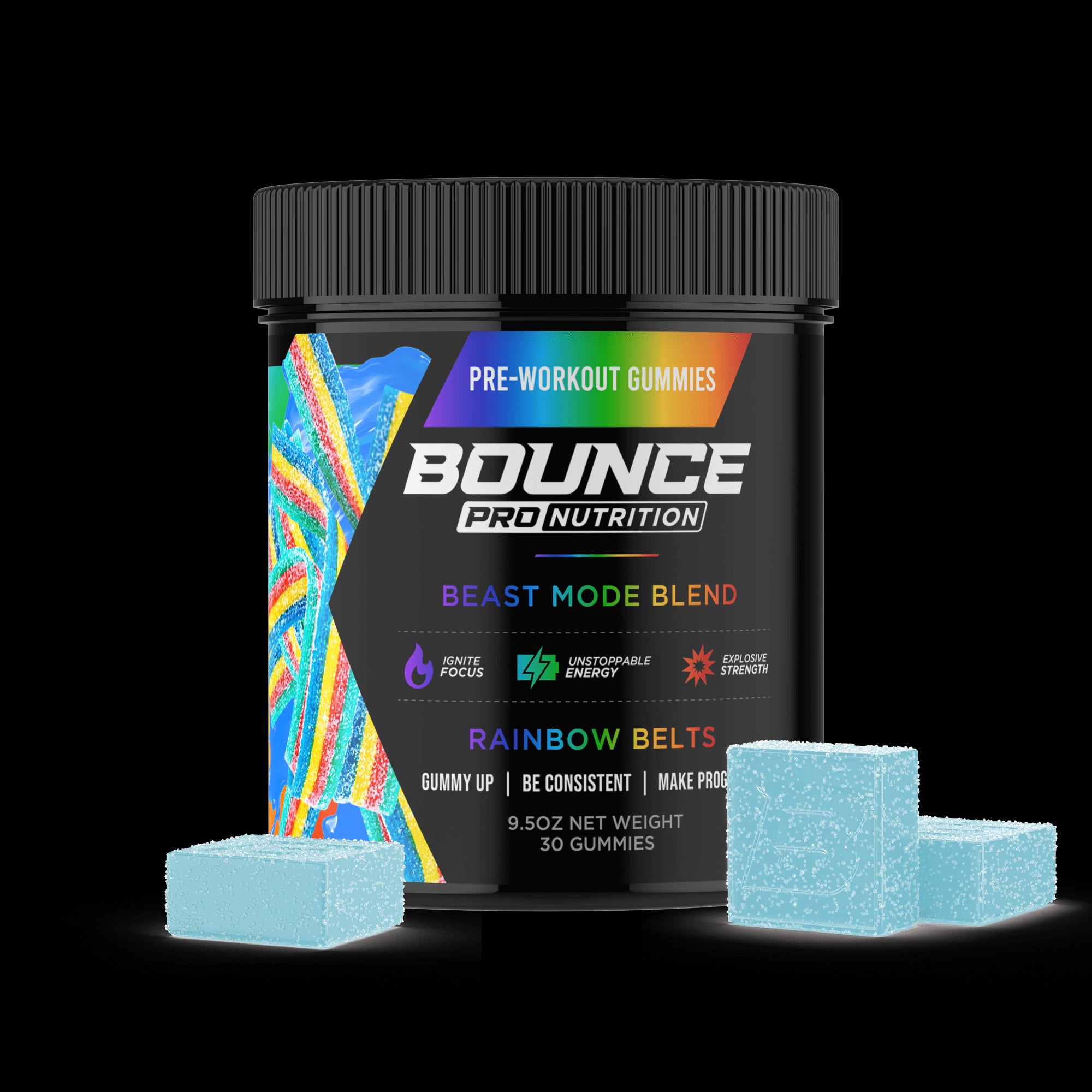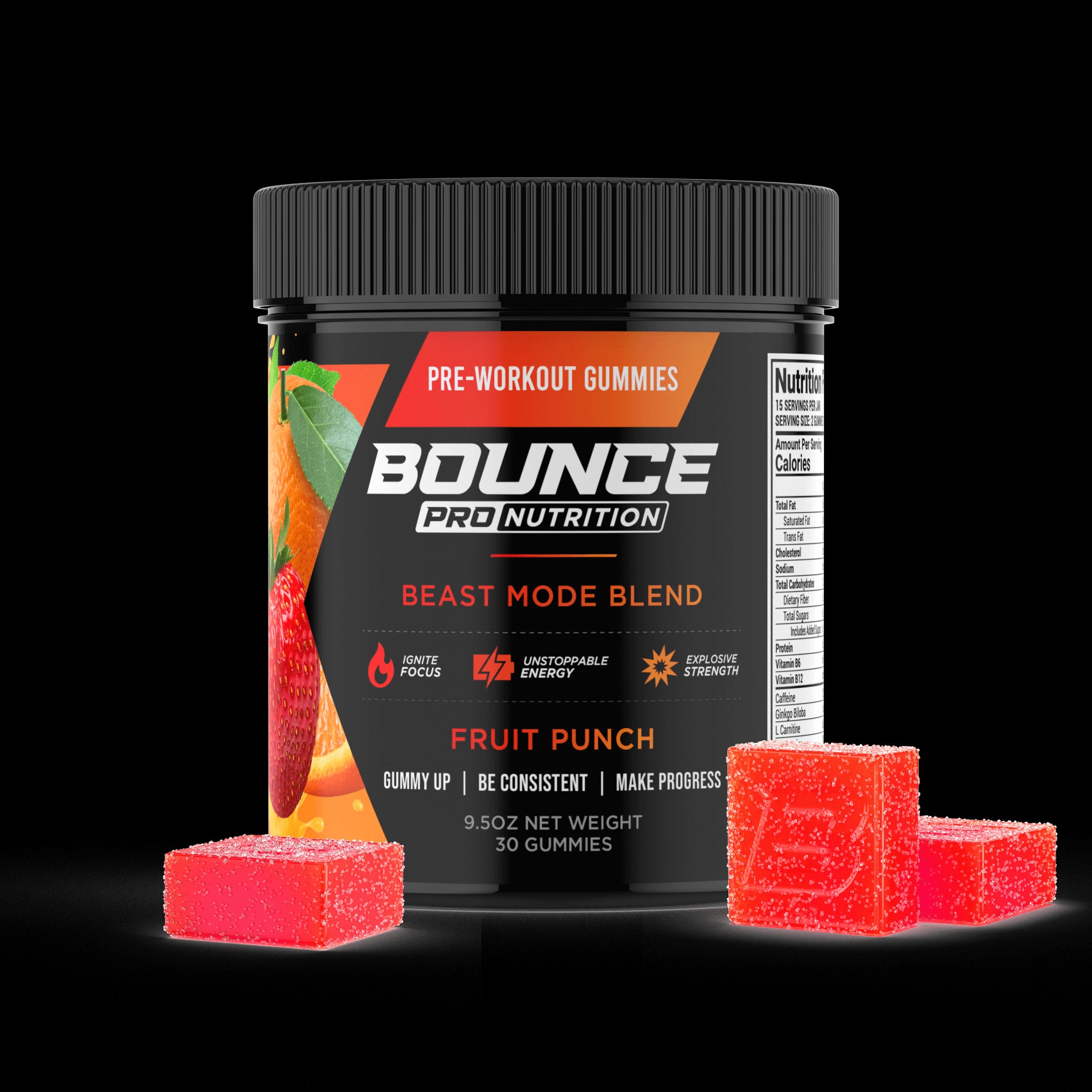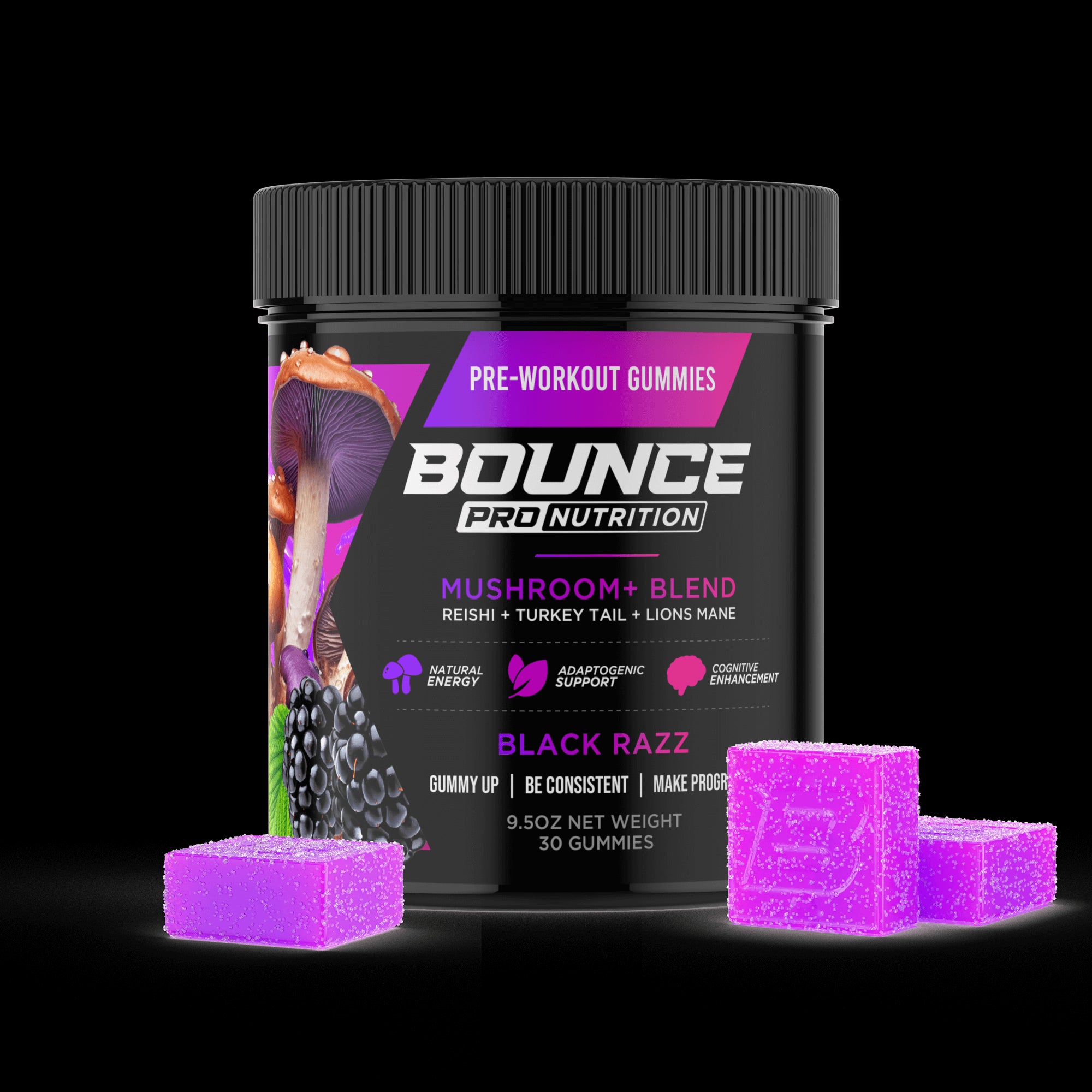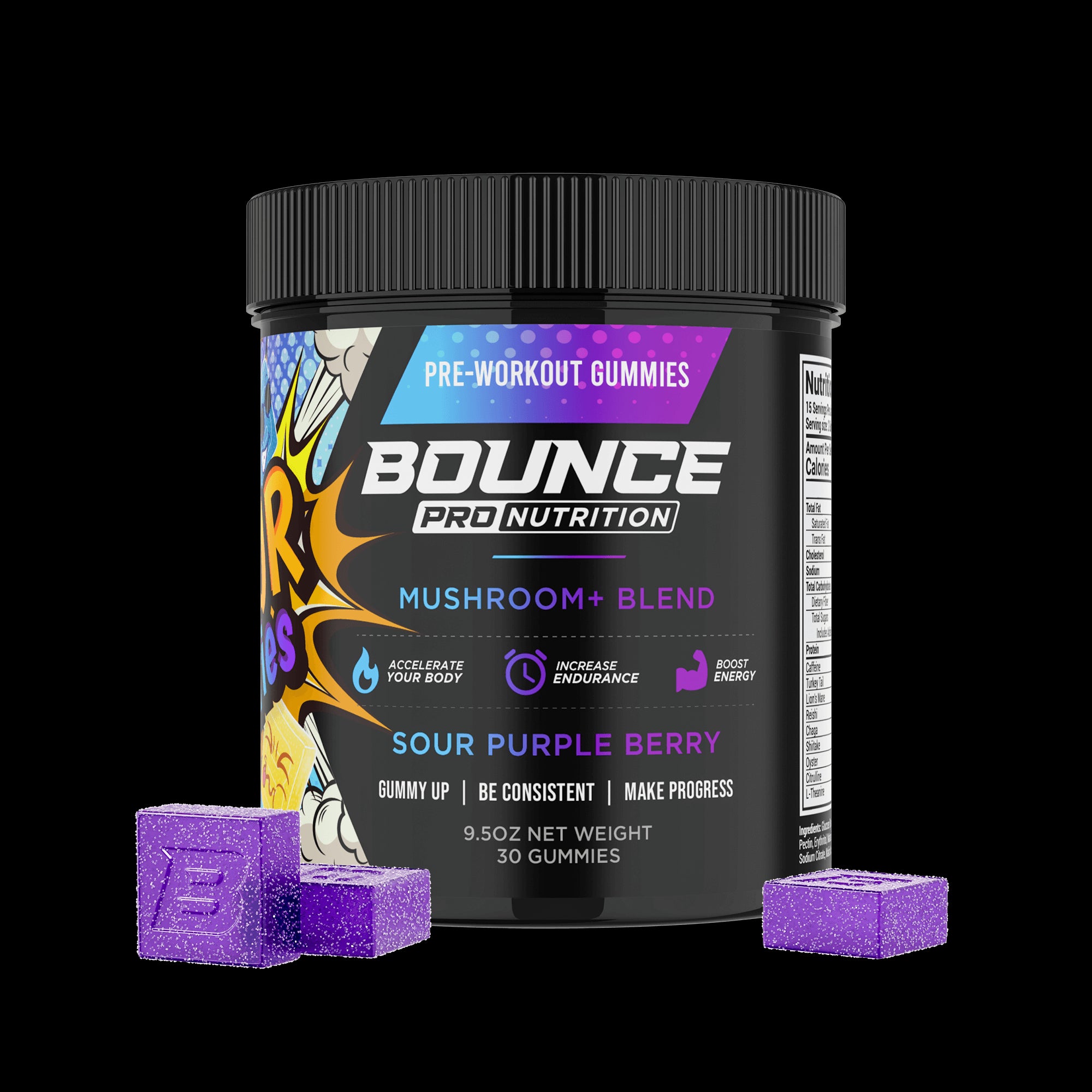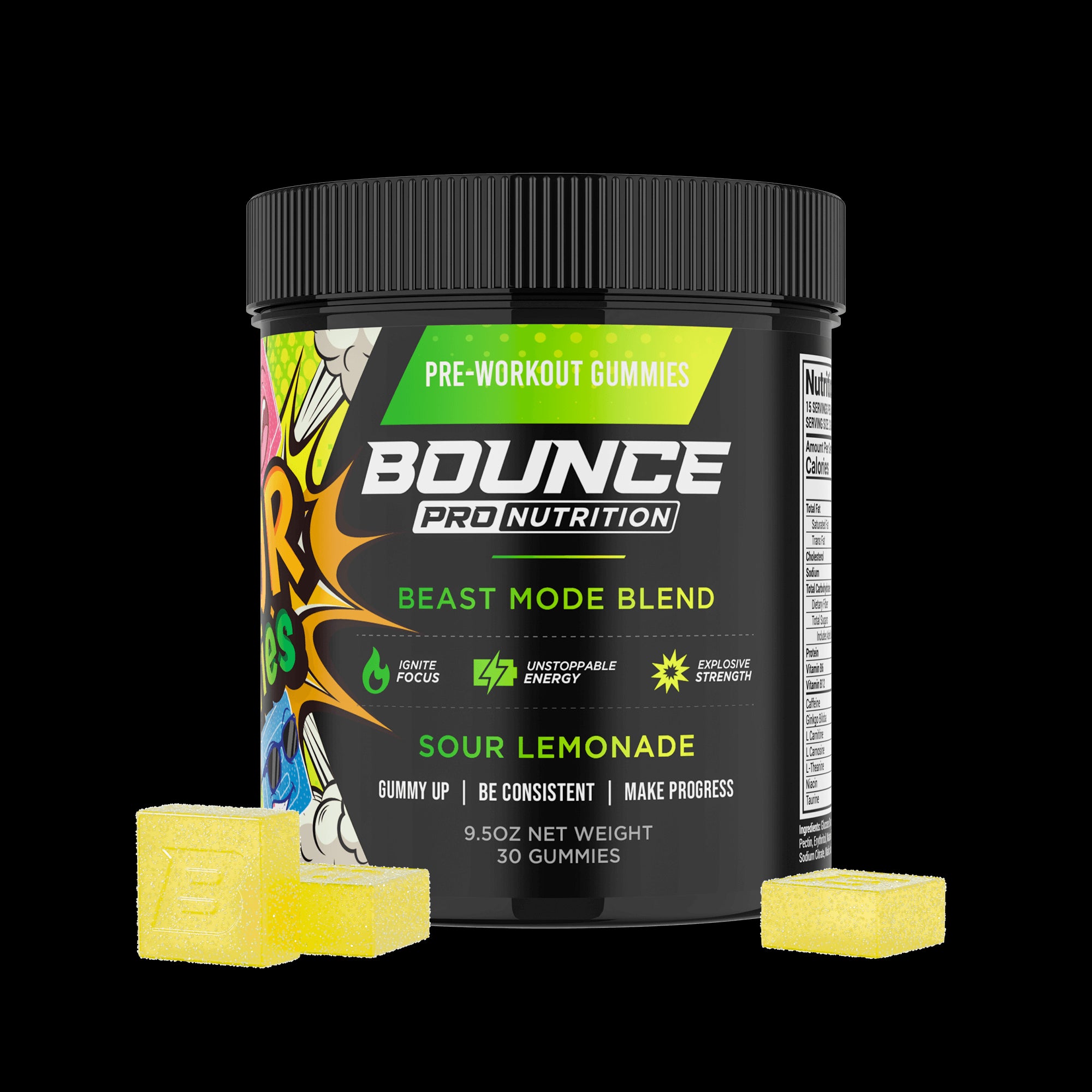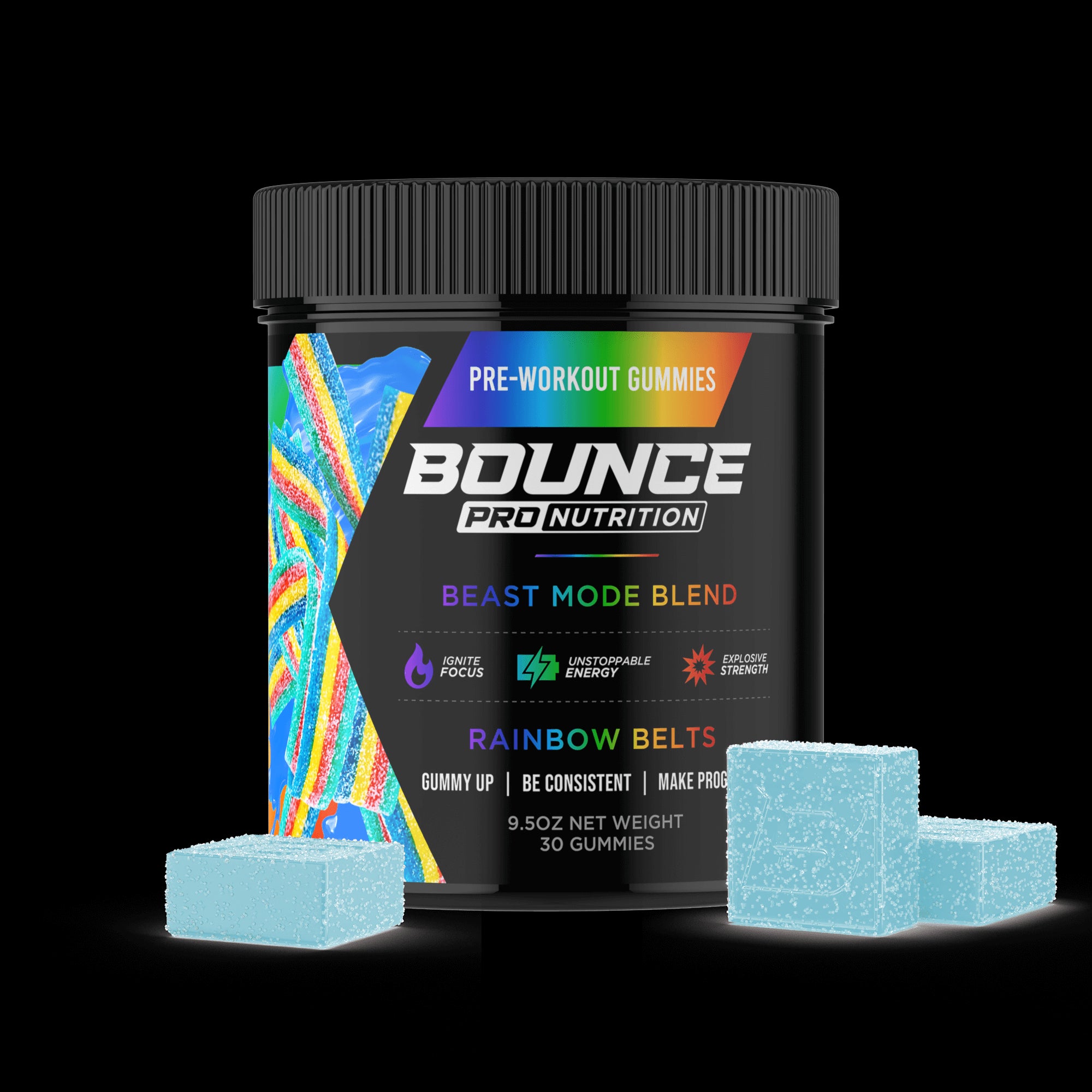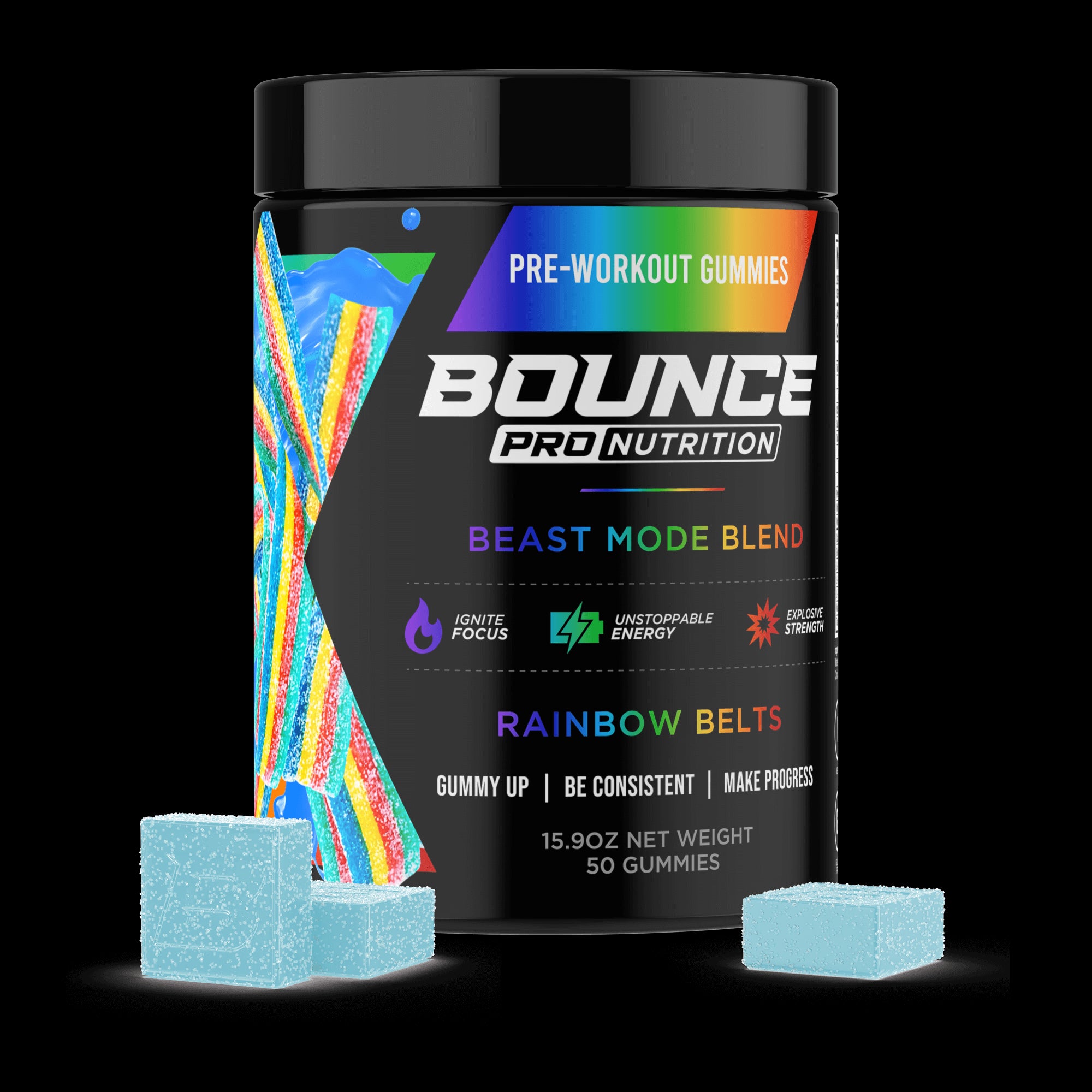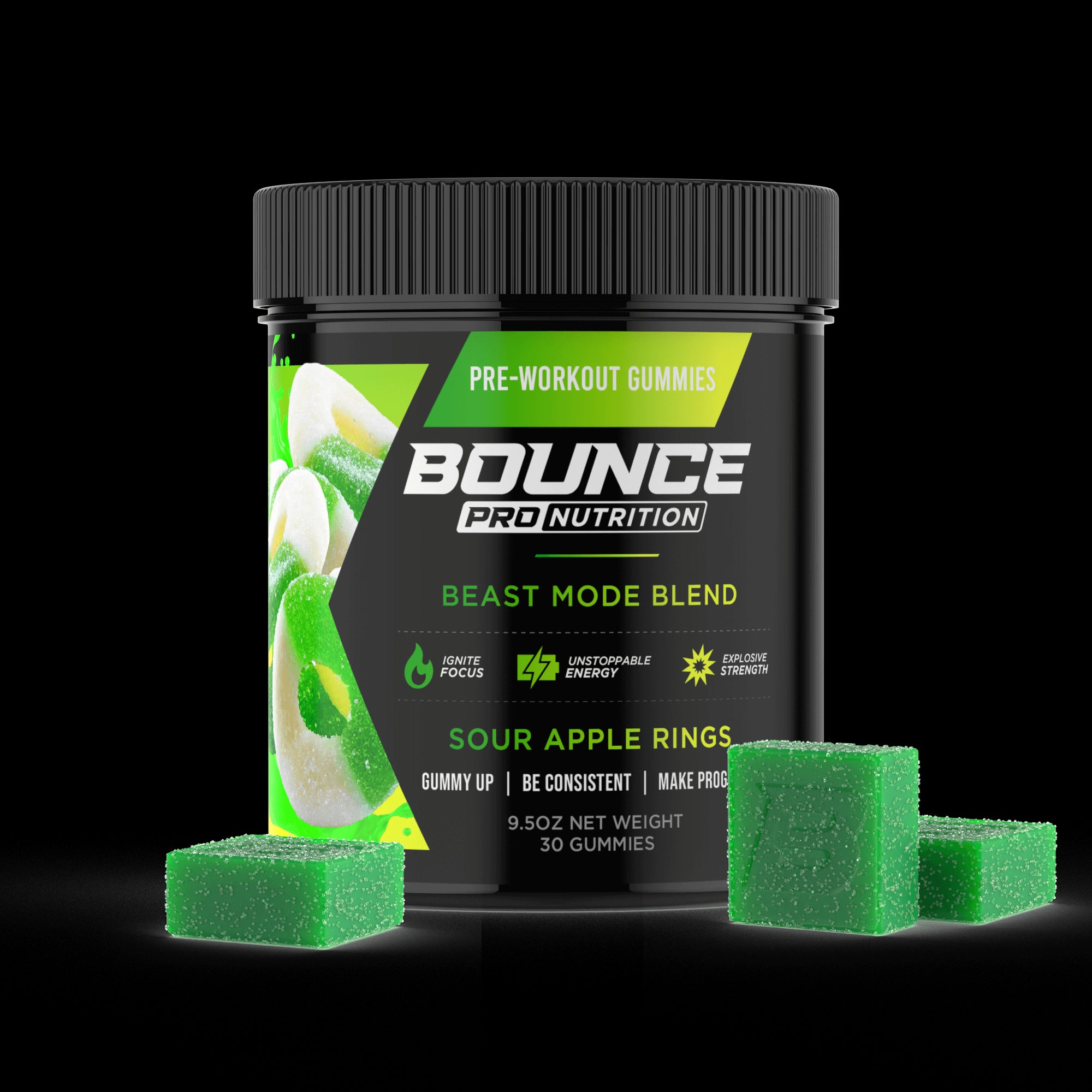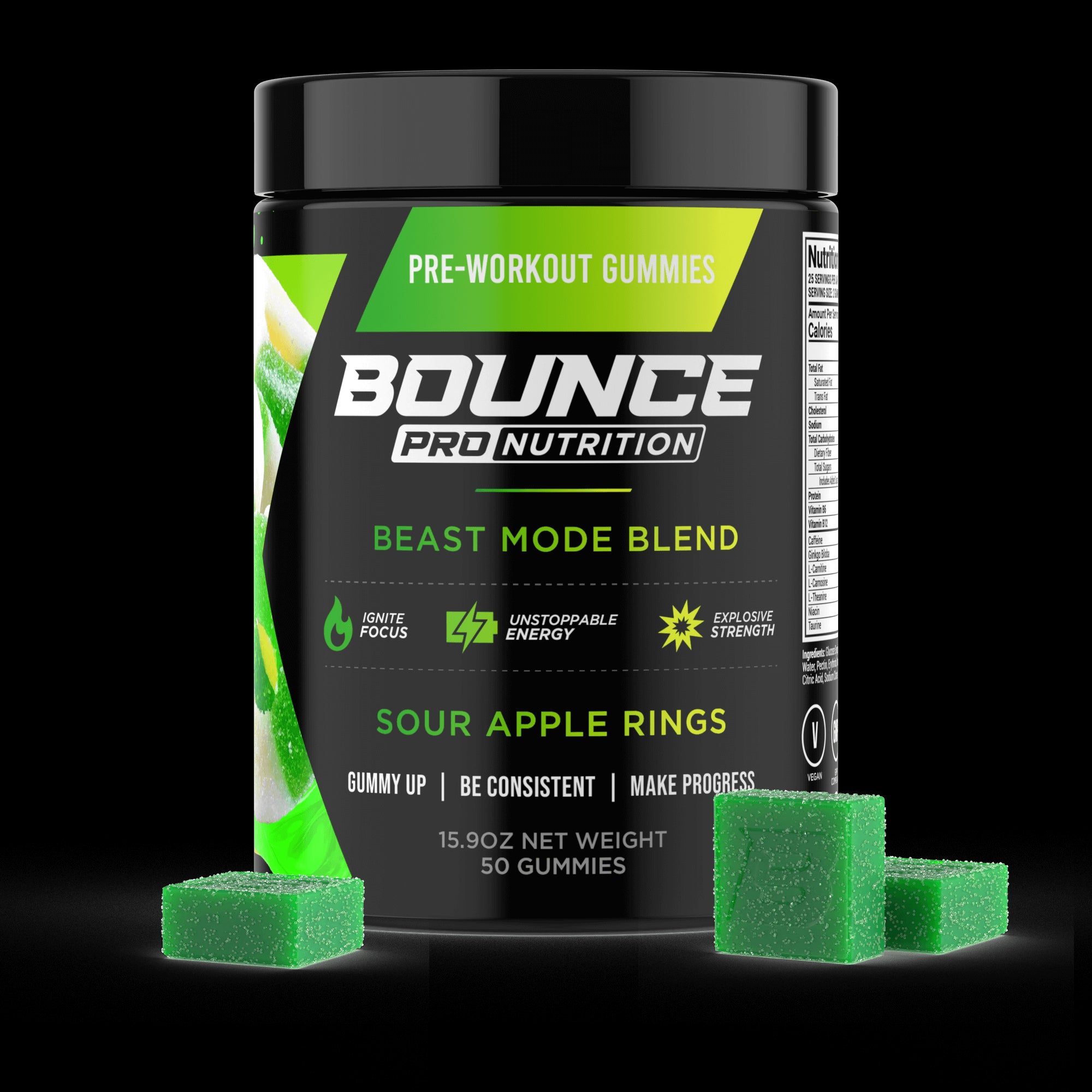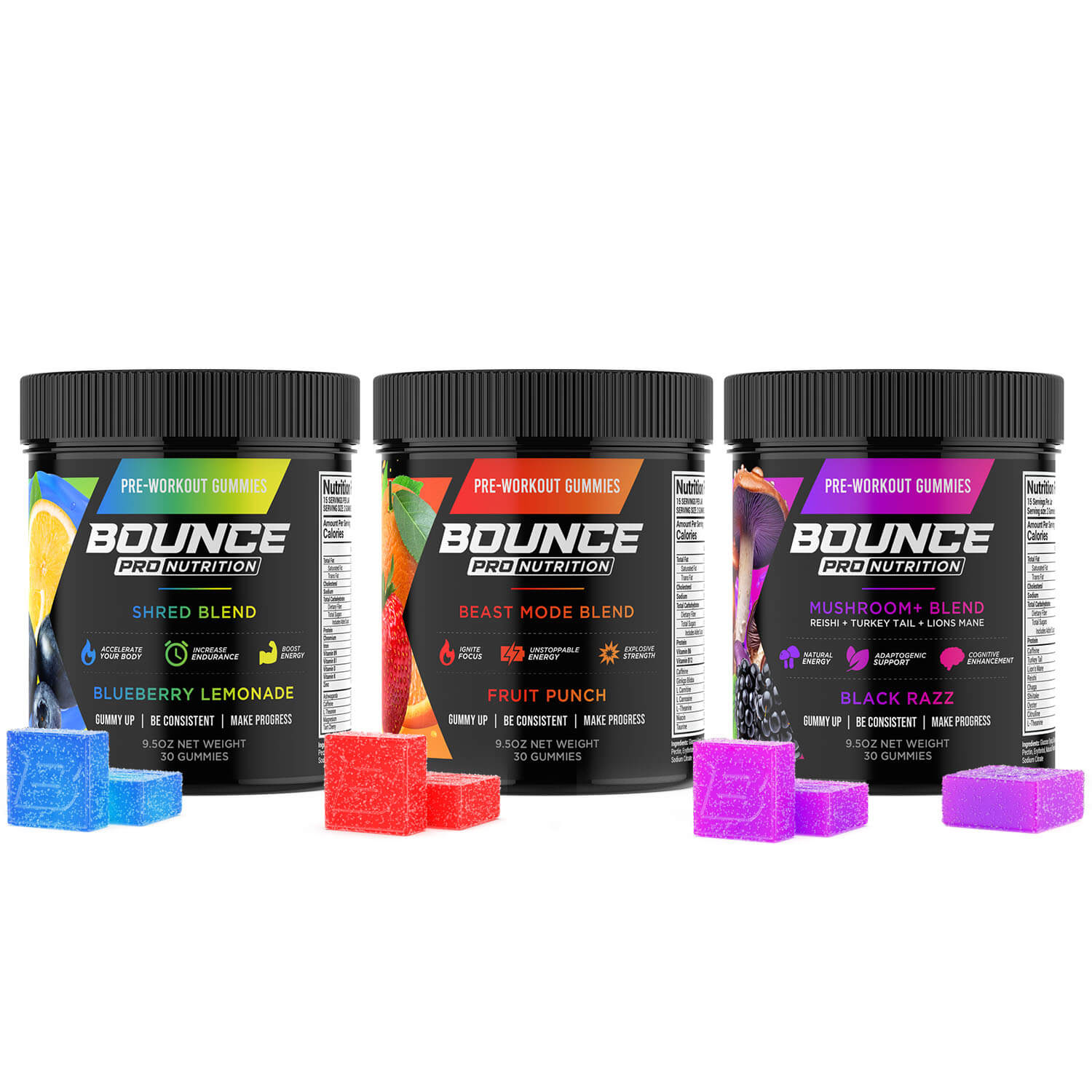Pre-workout chews are a type of supplement designed to be consumed before exercise to enhance performance, boost energy levels, and improve focus. These chews typically contain unique ingredients, and even come in the form of small chewable tablets or gummies, making them convenient for consumption before a workout.
The idea is that they provide a quick and easy way to ingest the necessary nutrients and compounds to optimize performance during physical activity.. Now, we want to believe that everything we put into our bodies for working out is safe.
But, the reality is that with any supplement, you gotta be a bit more careful, as there’s always a reason out there why someone might want to think twice about taking a specific formula – such as an underlying health issue that may be exacerbated, or someone who’s on a certain medication. Let’s dive further into whether or not pre-workout chews are ultimately safe.
TO BUY PRE-WORKOUT CHEWS CLICK HERE
Are Pre-Workout Chews Safe?
Overall, pre-workout chews produce gentle yet effective results when taken as directed – in other words, taken according to the directions on the package. So, their potential of causing side effects is low. Now, once again, every brand’s formula is unique, and some can contain ingredients that’re more strongly associated with side effects than others.
Because there’s such a vast array of ingredients that can be used, it’s impossible to create a cohesive list of potential side effects that accounts for every single ingredient that could be found in a chew.
Of course, one thing you do need to be mindful of is taking too much of any stimulant – even natural ones. Different types of stimulants have different safety profiles, and ideally, a company would never, ever use a stimulant that’s known to cause serious harm if taken in slightly above-average dosage amounts. However, you do want to avoid taking more than the directed amount of any pre-workout supplement, including those intended for consumption prior to exercise.
Are Pre-Workout chews Safe to Take with Other Supplements or Medications?
This will depend on the chews themselves, and what ingredients they contain. Most pre-workout chews contain ingredients that are totally safe to mix with other substances, like caffeine, creatine, and amino acids. But, you can always end up with chews made by a sketchy brand that’s using ingredients that are ultimately unsafe to mix with what you’re taking daily. So, we encourage you to simply pay attention to the ingredients, and also talk to your doctor if necessary.
What are the Side Effects of Pre-Workout Chews Then?
Before we cover the potential side effects here, keep in mind that everyone’s endocannabinoid system (ECS) responds differently to them. Also, make sure to always check the ingredient list, in order to steer clear of any potential allergens or ingredients one might be sensitive to. With all that said, here are some possible side effects of using pre-workout chews:
- Jitters and Anxiety: Many pre-workout chews contain caffeine, which can cause feelings of jitteriness, anxiety, and restlessness, especially in those sensitive to caffeine.
- Insomnia: Consuming pre-workout chews too close to bedtime can interfere with sleep due to the stimulating effects of caffeine and other stimulants.
- Digestive Issues: Ingredients like caffeine, creatine, and beta-alanine can cause digestive discomfort, including bloating, gas, and diarrhea.
- Increased Heart Rate and Blood Pressure: Stimulants in pre-workout chews can lead to an elevated heart rate and increased blood pressure, which can be concerning for individuals with cardiovascular issues.
- Tingling Sensations: Beta-alanine, a common ingredient in pre-workout chews, can cause a tingling sensation on the skin, known as paresthesia. This is harmless but can be uncomfortable for some.
- Dehydration: Some ingredients in pre-workout chews, such as caffeine, have diuretic effects, which can lead to dehydration if not enough water is consumed.
- Headaches: Dehydration and high doses of certain ingredients, like citrulline and arginine, can lead to headaches.
- Dizziness: Stimulants and other active ingredients can sometimes cause dizziness, especially if the pre-workout chew is taken on an empty stomach or in high doses.
- Allergic Reactions: Some individuals may experience allergic reactions to certain ingredients in pre-workout chews, leading to symptoms such as itching, rash, or swelling.
To minimize these side effects, it is important to follow the recommended dosage on the product label, stay hydrated, and avoid taking pre-workout chews too late in the day. If you have any pre-existing health conditions or are taking medication, consult with a healthcare professional before using pre-workout chews.
Who Should Take Pre-Workout Chews?
In order to get that workout edge, taking pre-workout chew can be a viable strategy, particularly for those in the following areas or do certain strength-training and other exercises.
Athletes
Athletes can benefit from pre-workout chews as it helps them maximize their training as well as their actual performance. This can give them a competitive edge, and even help them get more out of each training session so that the cumulative benefits of their training regimen means a better performance when the time comes.
Weight Lifters
Weight lifters in particular can benefit from pre-workout chews, not only because of the increase in energy that they can offer, but also because of the fact that they can help build more muscle, aid in muscle repair, and prevent muscle fatigue – three things that matter tremendously to anyone who lifts weights or does any other form of strength-training.
High-Endurance Fitness Enthusiasts
The things we said above show us why so many fitness enthusiasts love pre-workout chews – especially those who push themselves particularly hard, and need all of the help they can get. These chews work with the body’s natural physiological processes to maximize the state of one’s body and mind when it’s time to hit the gym.
Anyone Who Has a Hard Time Starting a Workout Routine
Finally, pre-workout supplements can be great for someone who just has a hard time getting started, due to issues like fatigue, stress, or a general lack of motivation.
Who Shouldn’t Take Pre-Workout Chews?
If you’re generally healthy, don’t have underlying medical problems, and don’t take any medications that could interact with these supplements, then pre-workout chews and other supplements are considered safe to consume. Still, that doesn’t mean they’re automatically going to be safe for everyone. Let’s see who might not benefit from pre-workout chews:
- Those with Heart Conditions: Because pre-workout chews usually contain stimulants, they may not be ideal for those with heart conditions, and it can even be dangerous.
- Those Who are Pregnant: These products are not recommended if you’re pregnant, as they have not been tested on those who are pregnant, and they may cause harm to the fetus.
- Children: Children are probably best not taking pre-workout chews. These products haven’t been tested on children, and children likely don’t require them as they have higher energy levels, more motivation, and bodies that repair themselves quickly.
- Those with High Sensitivity to Caffeine: While not every pre-workout supplement has caffeine, most do. And, while the majority do tolerate caffeine just fine, some are very sensitive to its stimulating effects, which can trigger bouts of anxiety, irritability, and other side effects.
- Those Who Don’t Exercise: If you don’t exercise, you probably don’t need to take a pre-workout product.
- Those Who Develop Digestive Problems from Consuming Them: Some people have a sensitive digestive system, and thus, find that taking pre-workout supplements cause an upset stomach, even after taking them for several weeks.
How to Know You’re Buying Safe and Legit Pre-Workout Chews
When purchasing pre-workout chews, it's essential to prioritize safety and legitimacy to ensure you're getting a product that aligns with your health and fitness goals. Here are some steps you can take to ensure you're buying safe and legitimate pre-workout chews:
- Research the Brand: Start by researching the brand manufacturing the pre-workout chews. Look for reputable companies with a history of producing quality supplements. Check their website, read customer reviews, and look for any certifications or awards they may have received.
- Read the Label: Carefully read the label of the pre-workout chews to understand the ingredients used. Look for natural ingredients and avoid products that contain excessive amounts of artificial additives, fillers, or potentially harmful substances.
- Check for Third-Party Testing: Legitimate supplement companies often conduct third-party testing to ensure the quality and safety of their products. Search for certifications from organizations such as NSF International, USP, or Informed-Sport, which indicate that the product has been independently tested for purity and potency.
- Look for Transparent Ingredient Lists: The ingredient list should be transparent, with clear indications of the amounts of each ingredient included. Avoid products that use proprietary blends, as they may not disclose the exact composition of their formula.
- Verify Claims and Marketing: Be cautious of exaggerated claims or marketing hype surrounding the product. If the claims seem too good to be true, they probably are. Look for evidence-based information and scientific studies supporting the effectiveness of the ingredients used.
- Consult with a Healthcare Professional: If you have any concerns about the safety or efficacy of a pre-workout chew, consult with a healthcare professional before making a purchase. They can provide personalized advice based on your individual health needs and goals.
- Avoid Suspiciously Low Prices: While affordability is important, excessively low prices may indicate substandard quality or counterfeit products. Be wary of deals that seem too cheap compared to similar products on the market.
Speaking of Ingredients and Lab Reports, How Do You Read a Pre-Workout Chew Lab Report?
Reading a lab report for pre-workout chews involves understanding several key components that detail the composition, quality, and safety of the product. Here's a guide to help you interpret the information typically found in such reports:
- Identification of the Product: This section includes the name of the product, batch number, and date of testing. Ensure this information matches the product you have.
- Active Ingredients: Pre-workout supplements often contain ingredients like caffeine, beta-alanine, creatine, and amino acids. The report should list each ingredient and its quantity per serving.
- Potency and Concentration: The report should confirm that the ingredient concentrations match those claimed on the product's packaging. This ensures you are getting the proper dosage.
- Nutritional Information: This part details the caloric value, amount of carbohydrates, sugars, proteins, and fats in the chews. It's important for understanding the overall nutritional profile of the supplement.
- Testing for Banned Substances: If the pre-workout chews are meant for athletes, the report might include testing for banned substances as per sports regulatory bodies (like WADA). This is crucial for competitive athletes to avoid accidental doping.
- Microbiological Testing: This section tests for the presence of harmful microorganisms like E. coli, Salmonella, and yeast/mold counts. Safe levels should be within regulatory limits.
- Heavy Metals Analysis: Tests for heavy metals (like lead, arsenic, mercury, and cadmium) ensure the product is free from these harmful contaminants.
- Allergen Information: Important for people with allergies, this section reports on the presence of common allergens like nuts, soy, gluten, etc.
- Physical Properties: May include the texture, color, and size of the chews, ensuring consistency and quality.
- Shelf Life and Storage Conditions: Indicates the expiration date and the recommended storage conditions for maintaining the chews’ efficacy and safety.
- Seal of Approval: Seals of approval from regulatory bodies or industry organizations, such as the FDA (Food and Drug Administration) or GMP (Good Manufacturing Practice) certifications, indicate that the product has been manufactured in facilities that meet stringent quality standards.
- Conclusion/Summary: This part summarizes the overall findings and states whether the product meets the quality standards set by the manufacturer or regulatory bodies.
- Accreditation of the Lab: Ensure that the laboratory conducting the tests is accredited and recognized for its reliability and accuracy.
Understanding these elements will help you make an informed decision about the safety and efficacy of the pre-workout chews. If you're unsure about any part of the report, it might be helpful to contact the company you’re buying from, and even your doctor or a nutritionist.
Pre-Workout Chews Can Be Safe, But Only if They Meet Certain Criteria
If you’ve been on the fence about taking a pre-workout chew because you’re worried about their safety, we hope that we’ve alleviated some of that concern for you. Fortunetly, most people who work out regularly do take pre-workout chews, and find that they’re super beneficial, without causing any real side effects.
If you’re searching for pre-workout chews that’re safe, choose the chew formulas from Bounce Nutrition. We only use ingredients that are proven to be safe, and our stellar reputation speaks for itself.

